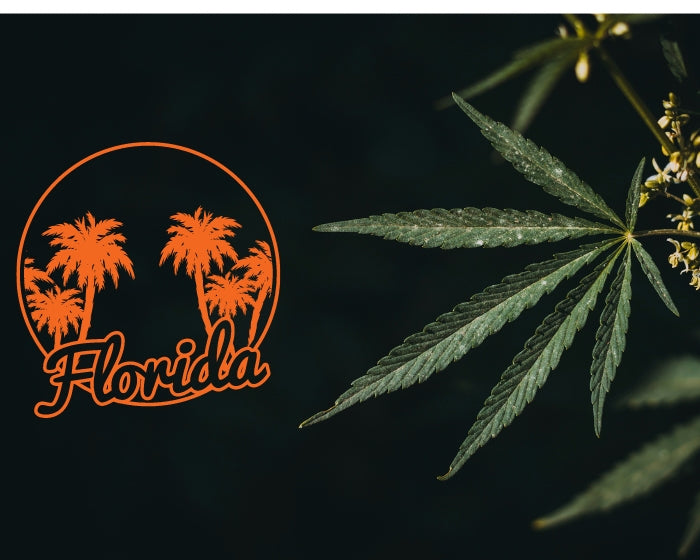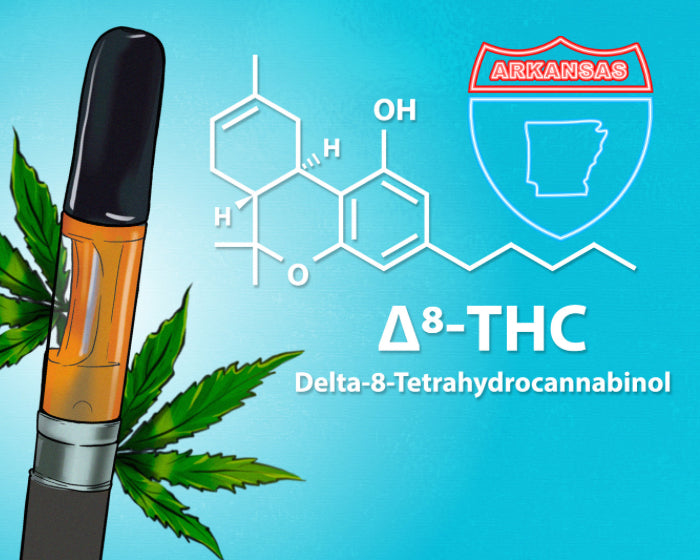Despite the dire concerns of industry stakeholders, the controversial measure passed another legislative hurdle this week.

[UPDATE]:
Last week state legislators in Florida introduced a new bill to restrict hemp-based products containing THC. House Bill 1475 seeks to restrict the amount of THC in hemp-derived products to no more than 5 MG per serving or 50 MG per package. It would also prohibit any individuals under the age of 21 from buying those products.
In addition, the proposed measure would enforce packaging, labeling and testing requirements for hemp-based items, require hemp product containers to be "not attractive to children," and have a design that minimizes exposure to extreme cold and hot temperatures.
As first reported by Marijuana Moment, on Wednesday, House Agriculture & Natural Resources Appropriations Subcommittee members approved the bill despite loud and passionate protests from hemp industry advocates present at the meeting. According to many of the hemp small business owners in attendance, the proposed legislation would cripple the still fledgling hemp industry in Florida.
When the bill's House sponsor, Manatee County Republican Will Robinson Jr., first introduced the measure, those who sell and use hemp-derived products reacted so negatively to the proposed THC restriction limits that Robinson immediately added an amendment raising them to the current 5 MG/serving and 50 MG/package size levels. However, the Senate version of the bill, SB 1676, remains much lower with a 0.5 MG/serving and a 2 MG/package size limitation.
According to economic estimates, the hemp industry in Florida employs over 189,000 people and comprises close to 10,000 small businesses. Even at the adjusted House recommendations, stakeholders and industry activists believe that if the bill passes in the House and Senate and is signed into law by Gov. Ron DeSantis (R), the fate of those economically invested in and reliant upon the highly successful hemp sector could be in dire jeopardy.
William Clark of the Libertarian Party of Florida, following the committee vote, said, "It's overregulation. It's anti-free market. It's anti-small business, and it's anti-free Florida principals."
"It's overregulation. It's anti-free market. It's anti-small business, and it's anti-free Florida principals."
- William Clark of the Libertarian Party of Florida
Like many other states that have either passed or are contemplating legislation to restrict the hemp market, the main target of their regulatory vexation is the proliferation of products containing synthetic THC variants, most notably delta-8 THC. When Congress passed the new Farm Bill in 2018, hemp was removed from the Controlled Substances List, and it became legal to cultivate the plant and manufacture and sell products derived from it, including those containing delta-8.
Like its more famous cousin, Delta-9 THC (the variant that creates the "high" in marijuana), Delta-8 occurs naturally in hemp but typically in minimal amounts and with milder intoxicating effects. However, following the Farm Bill's passage, some enterprising and legally savvy hemp entrepreneurs began using chemical processes to artificially manufacture synthetic versions of different THC isomers, most notoriously delta-8.
When these new products became subject to legal scrutiny, the courts ruled that since they were technically derived from hemp, they were legal to make and sell under the Farm Bill. Consequently, mostly unregulated items containing the stronger and potentially hazardous synthetic version of delta-8 began showing up in gas stations and convenience stores nationwide.
In response, over 20 states have passed laws severely restricting the manufacture and sale of delta-8 products or have banned them altogether. However, to the men and women who own and operate legal and legitimate hemp businesses, the reaction by lawmakers is far too punitive.
Most of them strongly support the legislation's health and safety regulation portions but feel the THC limitations could effectively wipe out a large segment of the hemp industry in Florida. Unless lawmakers are willing to alter the current legislation significantly, many of those attending the hearings want the measure thrown out entirely.
Carlos Hermida, who owns and operates a Tampa-based hemp dispensary, echoes those sentiments by saying, "I urge that we either kill this bill or table it into the next session."
"I urge that we either kill this bill or table it into the next session."
- Carlos Hermida, Hemp Dispensary Owner in Tampa, FL
However, the chances of that occurring are slim at best. Following the committee vote, Rep. Robinson, in an attempt to appease the concerns of the bill's critics, showed a binder he said was full of amendments he wanted to add to the measure when the bill makes its final stop in the Infrastructure Strategies Committee.
Many in the committee room were not impressed by the binder or Robinson's reassurances. Their concerns and tensions are warranted. The hemp market generates close to $15 billion in economic activity for the state. All of that could disappear if cooler and more pragmatic heads do not prevail in the final three weeks of the legislative session.




























